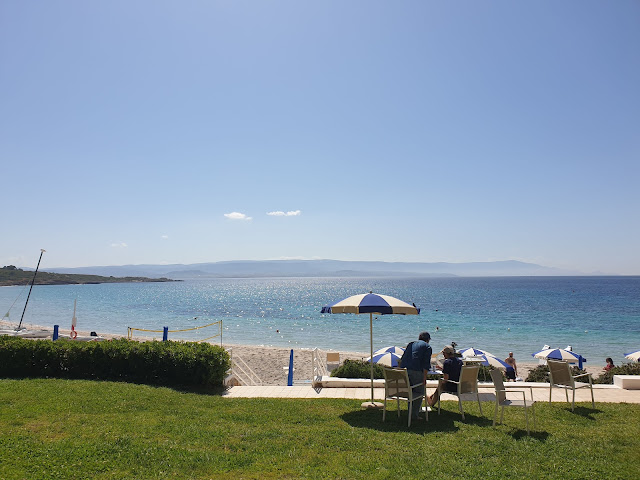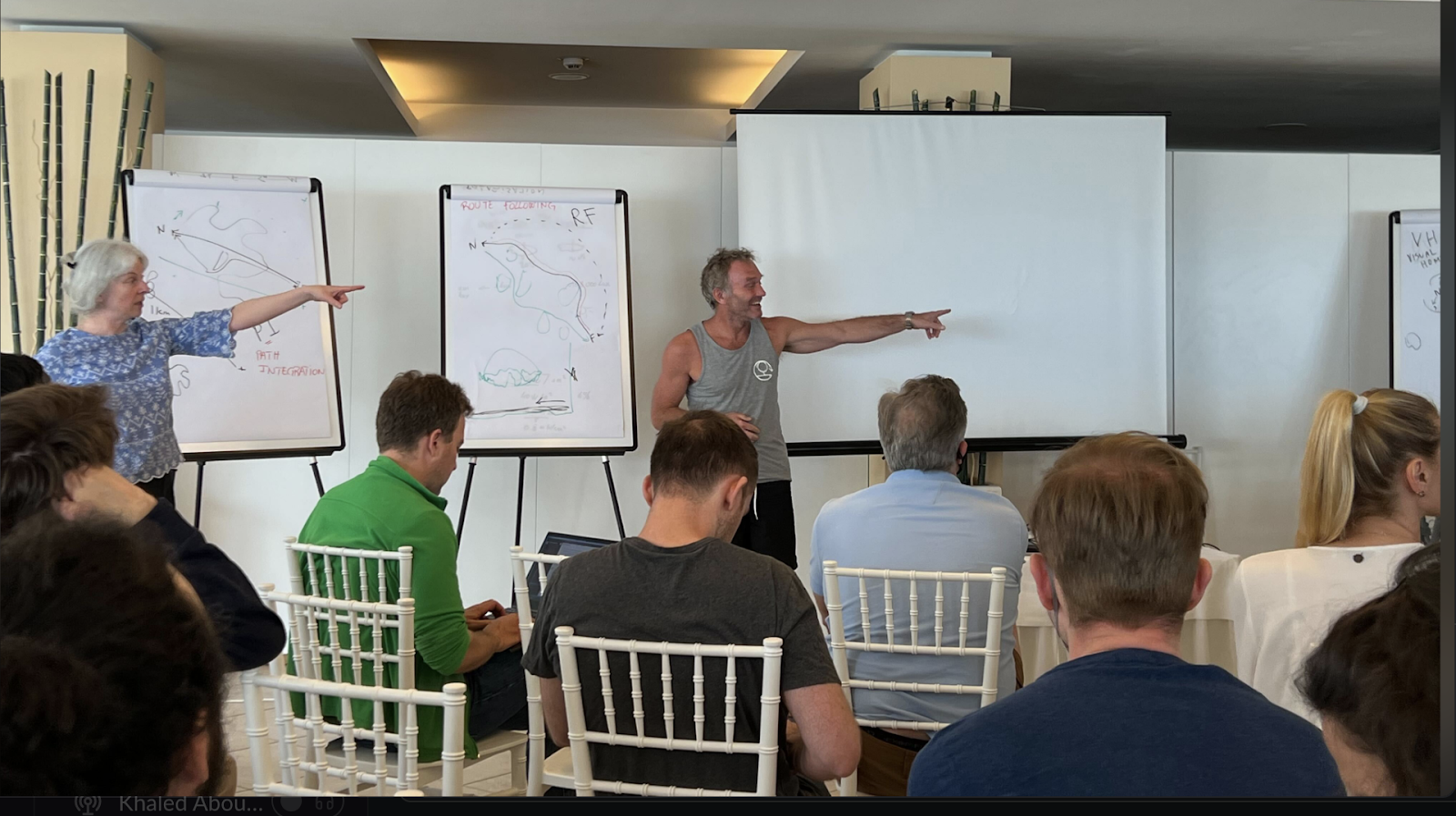Day 9 - Ben Grewe and Pau Aceituno - Cortical neaning rules and dynamical states
Benni started off by making the bold statement that learning rules did not matter. What matters is what the cell wants to do, via a cost function that the cells try to optimize. In the end, via calcium second messengers, the cells ultimately seems to have two attractor states, resting and active, and cellular feedback mechanisms always make neurons move to these stable down and up states.
After the coffee break (where participants were exhorted not to blow hot air at each other), Pau Aceituno took over. He looks at the problem in terms of Shannon information. The S sensor B brain and A action represent an agent (animal or artificial) that must process information. Just like in a Morse code where frequent symbols have shorter patterns (like . for e and - for t, while c is -.-. and q is --.-), the nervous system must use similar concepts for efficiency.
Inevitably, the A information must be less than the S information. There is a bottleneck from S to A. It should allow generalization. Formally this generalization is written as an expression that minimizes I(S;B) such that I(B;A) is maintained.
Pau went on to present some very interesting results about interpreting human epileptic cortical recording data in terms of information theory and liquid state pools. His analysis of this data from another group, taken from small chunks of cortex removed from language areas, showed that this tissue lacked the characteristics seen in animal cortex, of strong reciprocal connections and sub-groups of neurons with strong excitatory connections.







Comments
Post a Comment